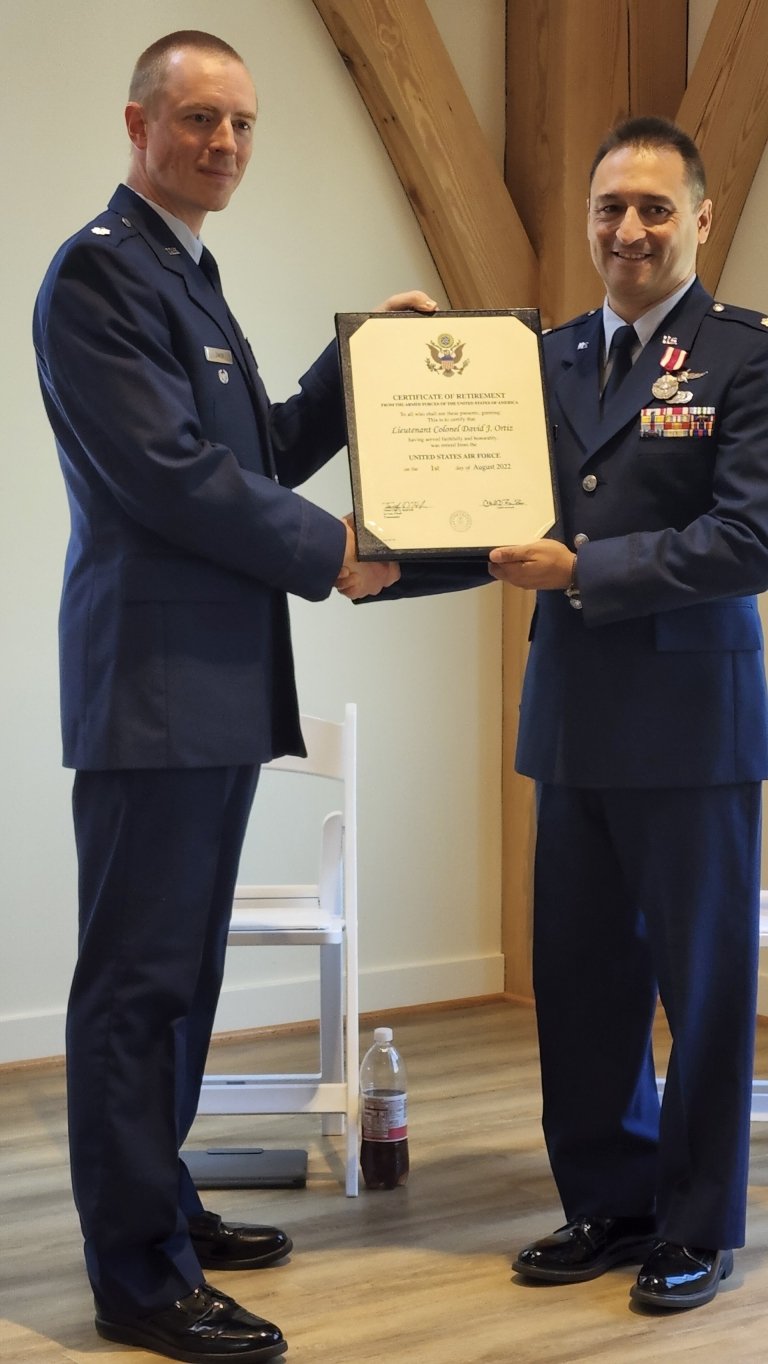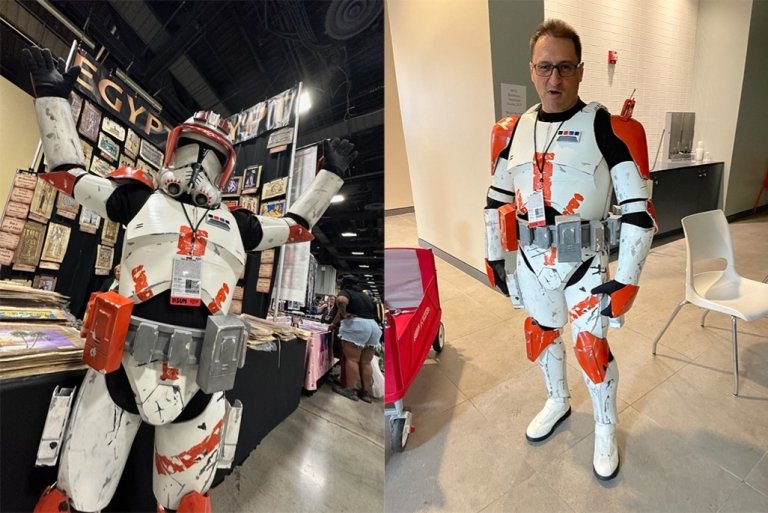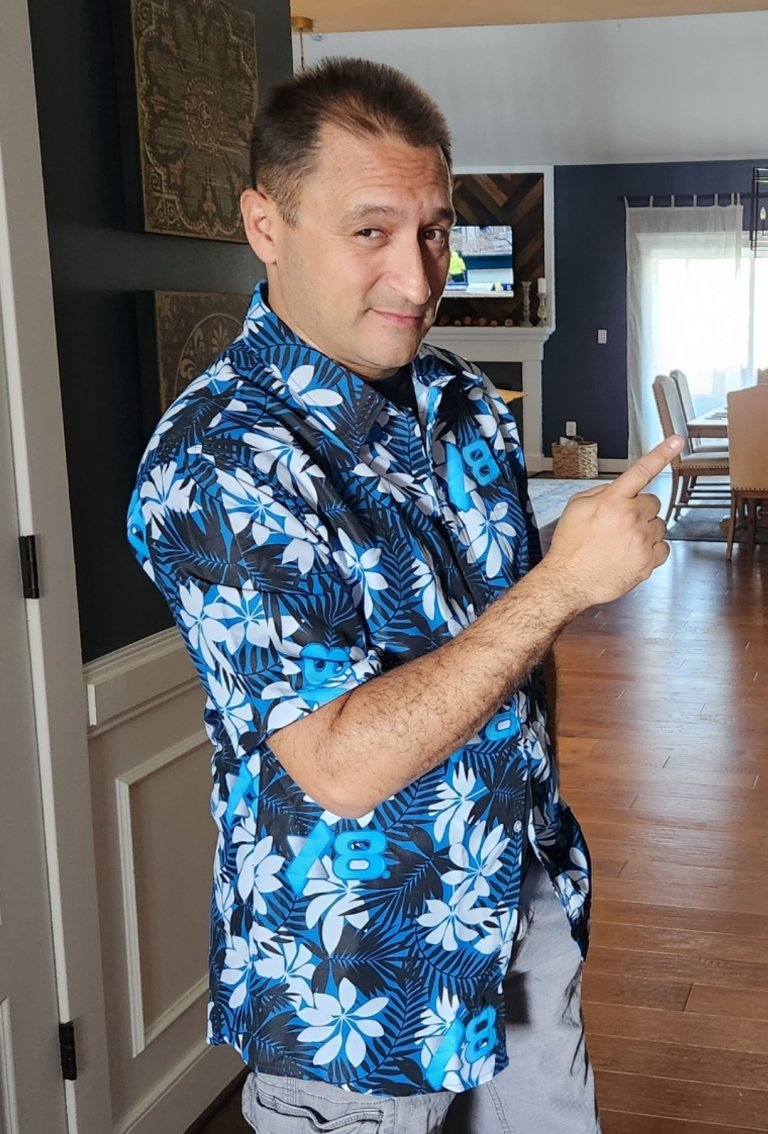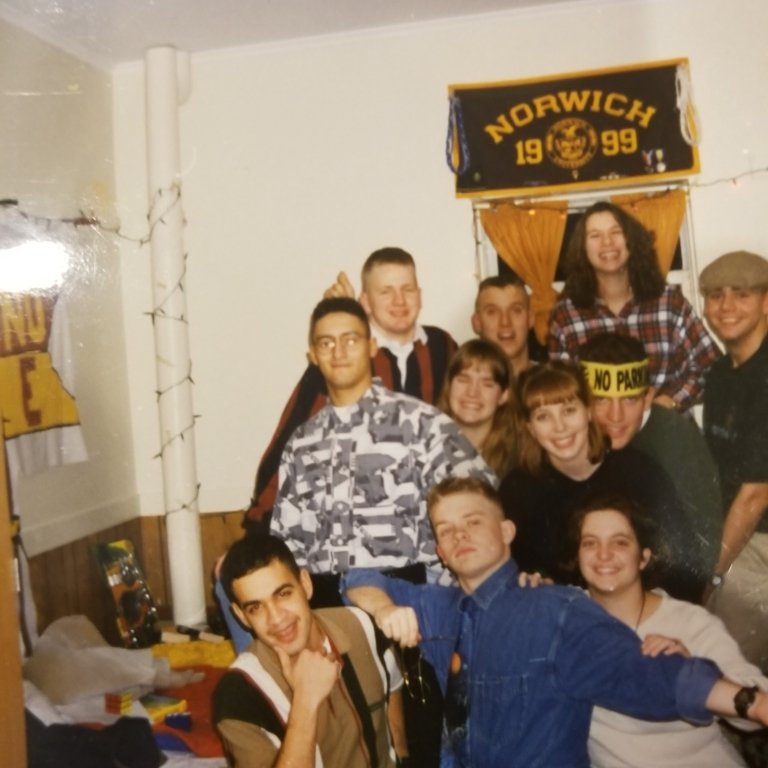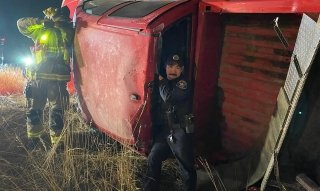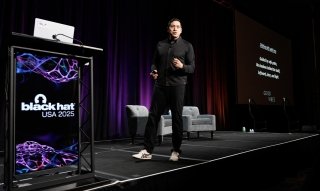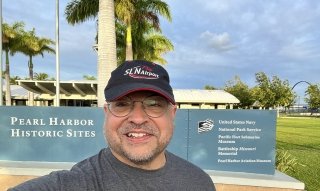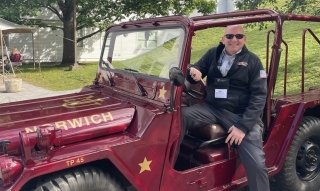David Ortiz
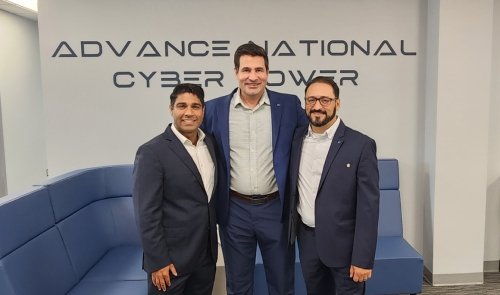
My master’s degree from Norwich was hugely important. It helped me succeed at the Pentagon and provided the foundation for the career I have now.
“You Don’t Have to Believe in the Devil”: A Norwich Grad on Cyberspace as a Strategic Domain
The first time David Ortiz drove down off the ramp toward Norwich University, something clicked. He was a kid from San Antonio looking for a military-style college that felt personal rather than immense. “Most Texans would have gone to Texas A&M. I even had a four-year targeted scholarship there, but I knew I would be lost in the enormity of it. It’s just so massive, and I really wanted a more personal college experience. Norwich was the best option.”
Neither of his parents had attended college, and despite his acceptance to Ivy League schools, he was unable to overcome the cost. The Air Force scholarship offered through Norwich ROTC gave him an opportunity. “With a three-year scholarship, they told me, ‘If you go to Norwich, you’ll be fine, because we’ll cover the rest after your first year.’ Plus, it was exactly the kind of environment I wanted.” The place had an impact that never really faded. “Seeing Norwich for the first time made an impression. It still does, every time I drive back.”
Ortiz commissioned in 1998 as an Air Battle Manager on Airborne Warning and Control Systems (AWACS). Early assignments brought camaraderie with other Norwich graduates and a little chaos at Tyndal AFB in Panama City, Florida. Later, Oklahoma brought a very different kind of challenge. “I was at Tinker Air Force Base when two massive tornadoes ripped through the state. The base was stuck right between both of them. It was like God put his thumb down and wiped out everything in a line all the way through Oklahoma City. I rode out the storm with my two rook buddies as we huddled in my apartment, hoping we’d be safe. We were incredibly lucky. One of the tornadoes turned at the last minute and spared the base. That year was insane.”
“I loved it [the Air Force] and didn’t want to leave, so after about four and a half years of active duty, I transitioned into the Air Force Reserve. That gave me two careers at the same time, one as a government civilian scientist and the other as a reservist.” He later moved into a DoD assignment, then transitioned from space analysis to cyber, and returned to Norwich for a master’s degree. “My master’s degree from Norwich was hugely important. It helped me succeed at the Pentagon and provided the foundation for the career I have now. Looking back, I have reinvented myself every couple of years, and that degree was a big part of making those reinventions possible.” In 2017, he left federal service and co-founded X8 LLC. “It is a labor of love, and I still get to support the military in cyber operations.”
The Norwich mindset
Asked how Norwich shaped those early years, Ortiz is direct. “I have seen excellent ROTC kids who went to places like Kansas State and turned out to be phenomenal officers. I have also seen terrible officers who graduated from the Air Force Academy. So, it is not about where you went as much as it is about how you carry yourself once you are in.”
What sets Norwich apart, in his view, is a practical strain of leadership learned among peers. “It’s like a shared personality across generations.” Cadets solve problems without waiting for someone else to script the answer. “At Norwich, we did not have much of that. We had to figure out how to lead our peers on our own. That teaches a very different leadership style. Not ‘I am the best and you need to shut up and listen,’ but humility combined with grit and the ability to deal with all kinds of personalities.”
Service before self grounds that approach. “I have always looked at leadership as making sure my folks can do their job. That is my job.” He describes having to stand up an operations center of 125 people with three months on the clock and no previous playbook. “I especially wanted to hear from the person who was the most pissed off about a problem. Because if they are not telling you how pissed off they are, it means they don’t trust you enough to say it. When people feel like their complaints or their ideas are reflected in what actually happens, they will fight for you without having to ask.”
A habit of building
Ortiz’s first invention came at 26 and reads like a Norwich tale. He told a senior technical executive after a few months on station as a 1LT, “I’m bored. Give me something to do. Because when I’m bored, I make trouble. We will solve it in nine months.” He accepted a problem no one had solved, only later realizing it originated several levels up the chain. He teamed up across generations and disciplines. “We put our heads together and came up with a solution no one had ever done before. We got it done in eight months, not nine.” The experience forged a long mentoring relationship and reinforced a pattern he keeps returning to: find the experts, trust the team, deliver.
That pattern carried into X8. “We have built a lot of different teams at X8, software development, software integration, infrastructure development, and management. But our biggest wheelhouse is offensive cyber operations. That is 95 percent of the work we do.” The challenge and opportunity he sees are the same. “Very few people know what we do or how to do it. Offensive cyber operations is really just a fancy word for hacking. No one gets educated in hacking in college. You can teach yourself some of it, you can take courses in the military or the government, but there is no degree in hacking.”
He wants higher education to step into that gap. “Imagine you are Roger Goodell running the NFL. Next year, all the colleges and high schools decide they are not going to train offenses anymore, only defenses. Now you still have to put on the NFL every year. What happens? You have no trained offenses at all.” For Ortiz, building offensive understanding makes defenders better too. “If more of our defenders thought like the adversary, we would have a much better chance at protecting the country.”
Picking people and shaping teams
On hiring, he starts by cutting through pedigree. “In the cyber world, it’s different than business or law. Nobody cares where you went to school. Nobody cares if you went to Harvard or UMBC. The interview matters.” He looks for clear explanations to basic prompts. “‘You type Google into your browser. Tell me what happens next.’ Or, ‘I’ve got an email address and a name. Tell me how you would prosecute that target.’ Or, ‘Here’s an IP address. Walk me through how you would figure out what it is.’”
He is upfront about giving Norwich grads a shot. “I am not here to fight fair. I want our Norwich folks to succeed.” And he zeroes in on intrinsic curiosity. “What really matters for success is whether you love it enough to do it at home when no one is looking.”
Leadership lessons from service are evident in how he structures his work. “You can have 3,000 people organized badly, and they will get almost nothing done. You can organize 40 people well, and they will do more work.” He favors empowered, temporary teams. “Standing multifunctional teams rarely work out. The better way is to build a team for the problem at hand, let them do the work, and then release them back to their home units.”
Strategy meets the wire
His Pentagon years were early in the fight. “We were just trying to convince the Pentagon that they were at war and didn’t really know it.” He used a simple frame to push urgency. “You don’t have to believe in the devil; the devil believes in you. It doesn’t matter whether you think it is happening. It’s happening whether you react to it or not.”
Back then, most leaders did not connect contractor networks to strategic risk. “Military leaders didn’t grasp that the contractors designing radar and aircraft were the weak link, and the adversary could just hack the company and steal everything.” The lesson he pressed is the one he still carries. “Cyber is a strategic asset because I can reach out and touch anything I can get hold of.”
At Fort Meade, he saw the value of calm command and short-lived, high-output teams. “Good integrated product teams stand up, get the job done, and then shut down when they are no longer needed.” It reinforced what he had learned by building an operations center from scratch. “Give them the rope to either succeed or hang themselves, and jump in only to course correct when needed.”
Giving back to the Hill and beyond
Ortiz spent eight years on the Norwich Alumni Board and now leads the Maryland Alumni Association while serving on the Board of Fellows. He mentors widely, often beginning with resumes. “I get random people on LinkedIn who know me or know of me, and they send me their resumes for advice.” His motivation is simple. “I think Norwich is an important place. It builds really good men and women for the country.”
He is focused on strengthening hands-on learning for today’s students. “Norwich also has great labs and is building a cyber fusion center. There is a strong hacking club, a cyber leadership development program, and students often participate in both.” He points to one recent investment that excites him. “Norwich paid for a subscription to Hack The Box, which is a pretty well-respected cyber training platform. They build mini labs where people can walk through complicated steps to learn concepts.”
For him, the value is both practical and protective. “Hack The Box is not foundational instruction. What it is, is a safe environment to experiment with sometimes dangerous concepts.” It allows students to test what they are learning in a controlled manner. “Hack The Box is great because it gives instructors a place to say, OK, you learned the concept, now test it. It’s not the basics. It’s a practical application of what you are learning where you won’t get charged with a crime.”
To bring his academic journey back into the foreground, Ortiz offers a straightforward reason to study cyber at Norwich. “Our graduate program is well regarded across the field. One of the biggest advantages is the small student-to-professor ratio. That was huge for me. I studied physics at Norwich, and those majors are tough, but what made it manageable was that I was one of only a few students in each class. My godson is going through it now, and he can attest to that. The personal, hands-on attention is critical.”

